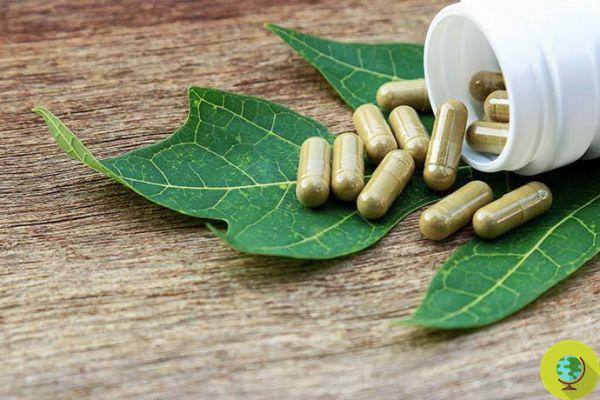
When we talk about herbal remedies we often think of something that can be taken with complete peace of mind as it is natural products. This is not the case, especially if you are taking drugs at the same time! One study warns about this often underestimated aspect of the treatments we choose to stay healthy.
Don't store avocado like this: it's dangerous
When you are talking about herbal remedies often one thinks of something that can be taken in complete tranquility since they are natural products. This is not the case, especially if they are hired at the same time drugs! One study warns about this often underestimated aspect of the treatments we choose to stay healthy.
We have reminded you several times in our articles: it is very important to pay attention to the possible side effects of taking drugs and natural remedies at the same time. Herbal treatments, apparently harmless, also have contraindications and could interfere with the proper functioning of the drugs.
St. John's wort (or St. John's wort), for example, can interact with a large number of medicines, and the same goes for ginseng or ginkgo biloba. In an extensive review of the medical literature, a research team from Stellenbosch University in Tygerberg, South Africa, uncovered dozens of cases in which alternative treatments appeared to have altered the effects of prescribed drugs, both nullifying their effect and accentuating it. or even worse, causing potentially dangerous side effects.
The paper included examples of patients who experienced severe problems after taking herbal medicines along with drugs of various kinds, including antidepressants and medications for HIV, epilepsy and heartache.
Charles Awortwe, lead author of the analysis published in the British Journal of Clinical Pharmacology, pointed out that the idea for the study was born as the simultaneous use of herbal supplements and traditional medicines is increasingly widespread.
The researcher, together with his team, reviewed existing medical literature to identify cases of patients who had experienced adverse reactions. 15 cases were analyzed in detail to understand if the problems could be caused by an interaction based on the pharmacological properties of the different active ingredients taken. The conclusion was that herbal remedies had probably played a role in almost 60% of the cases.
Evaluated, for example, the case of a 55-year-old man who died of a heart attack while swimming. The autopsy concluded that the ginkgo biloba supplements he was taking to boost cognitive function may have inhibited the effects of his anti-seizure drug therapy.
Edzard Ernst, Emeritus Professor of Complementary Medicine at the University of Exeter, said:
"It is important that consumers are warned of the danger and think twice before self-prescribing herbal remedies."
Yes, because this is often the problem. A doctor would never give a drug associated with a herbal remedy that could enter into dangerous interaction with it but the person often decides independently to take some natural solution to solve other health disorders, underestimating the underlying problem.
Remember, therefore, never to take anything too lightly and always notify your doctor if you want to take herbal remedies in conjunction with drugs.
You may also be interested in the interaction between medicines, plants and foods:
- Interaction between foods and drugs: the foods to avoid for each medicine
- Red light to green tea and antihypertension drugs
- Medicinal herbs: allergy risk if taken without criteria


























